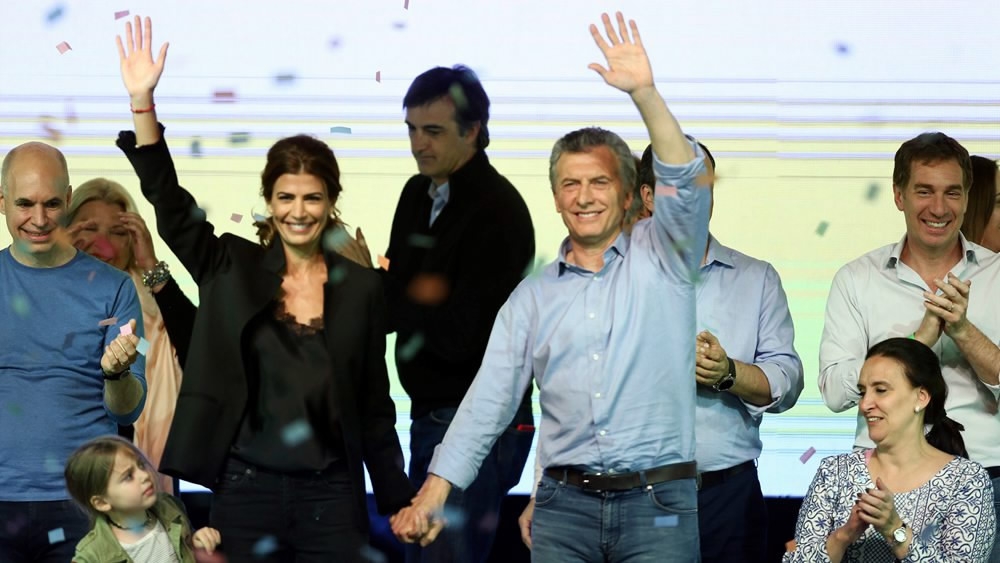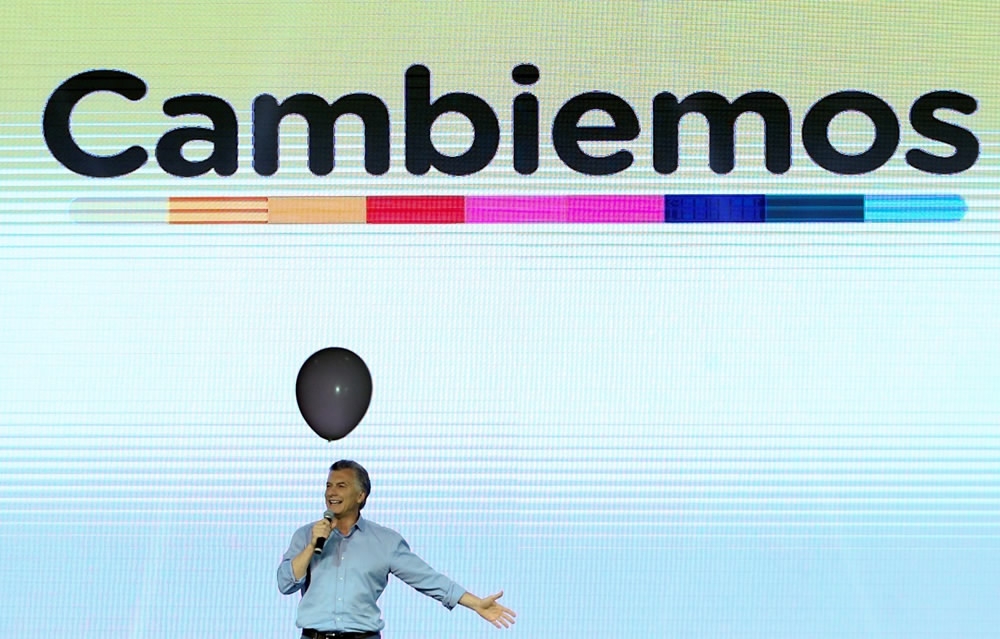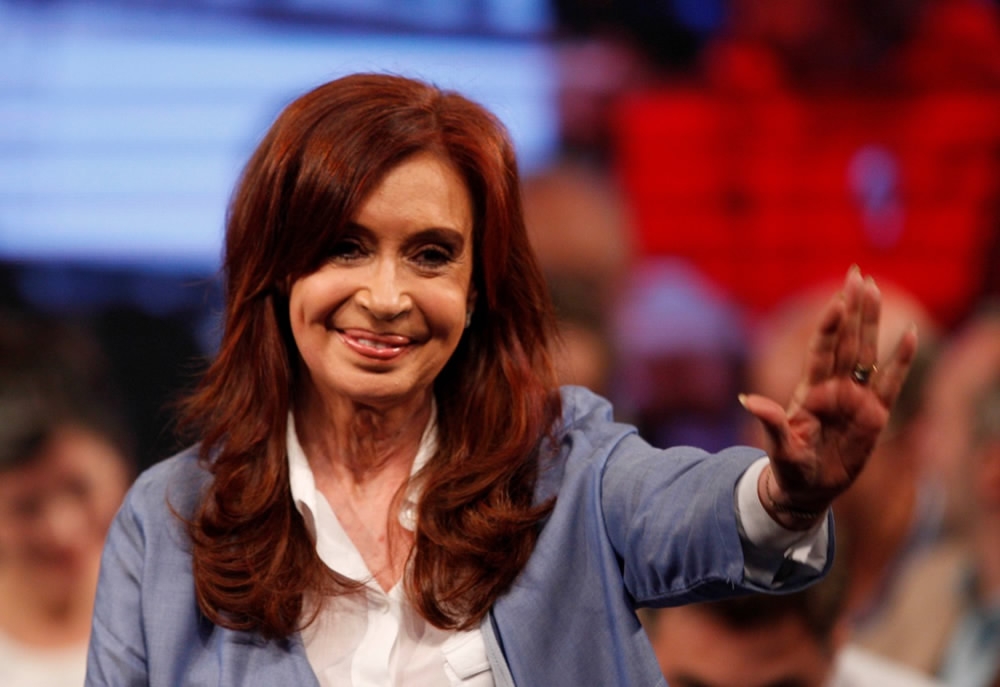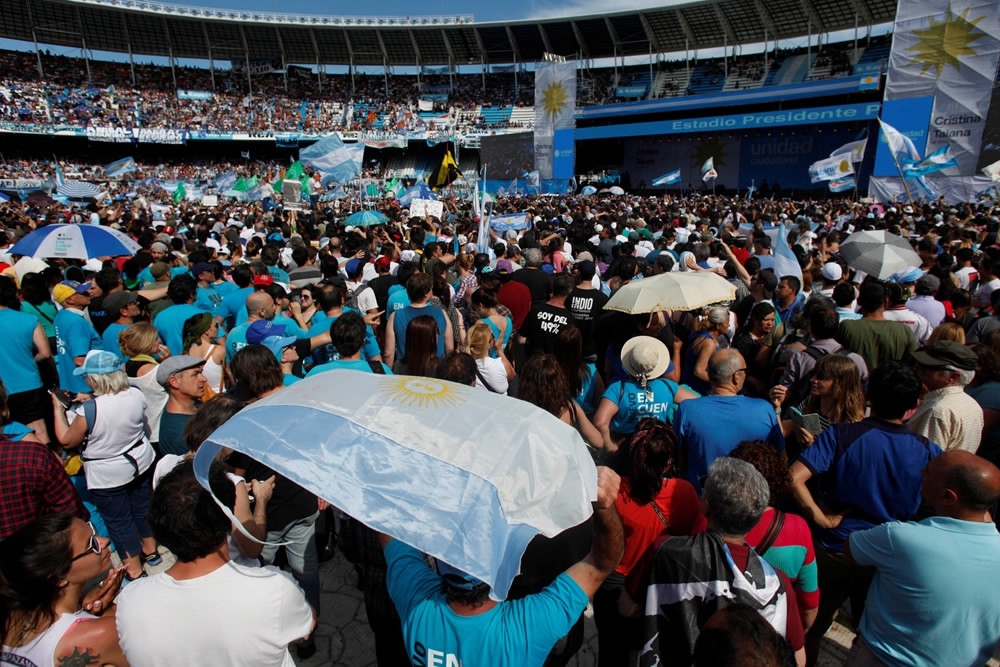
Politics
15:02, 23-Oct-2017
Argentina's Macri wins mid-term poll, Kirchner takes Senate seat
CGTN

Argentina's President Mauricio Macri's center-right coalition swept crucial mid-term elections Sunday and emerged with a strengthened hand to carry through pro-market economic reforms, according to nearly completed count results.
Ex-President Cristina Kirchner took a seat in the Senate, marking a return to the political stage she dominated for 12 years before stepping down in 2015, and guaranteeing herself parliamentary immunity from a string of corruption charges.
"We did not win as a party; what won was the certainty that we can change history, and build with love," a triumphant Macri told cheering supporters in Buenos Aires.
"An Argentine with desire has no limits, we are unstoppable," he said.

Argentina's President Mauricio Macri speaks at his campaign headquarters in Buenos Aires, Argentina, October 22, 2017. /Reuters Photo
Argentina's President Mauricio Macri speaks at his campaign headquarters in Buenos Aires, Argentina, October 22, 2017. /Reuters Photo
Kirchner said her new center-left Unidad Ciudadana or "Citizen's Unity" Party had distinguished itself in the vote as the only alternative to Macri's government.
"We must be proud of this result. Unidad Ciudadana has emerged as the strongest opposition to this government," an ebullient Kirchner told her supporters. "Here nothing is over, everything starts now."
Macri's Cambiemos, or "Let's Change," won in 13 of Argentina's 23 provinces, as well as in the capital Buenos Aires, according to almost completed counts early Monday.
Sunday's vote, with an official turnout of 78 percent, was widely seen as a referendum on Macri after two years in office, in which he was seeking a mandate to further overhaul of an ailing G20 economy.

Cristina Kirchner, former Argentine President and candidate for the Senate in the mid-term elections, waves to supporters at her campaign headquarters in Buenos Aires, Argentina, October 22, 2017. /Reuters Photo
Cristina Kirchner, former Argentine President and candidate for the Senate in the mid-term elections, waves to supporters at her campaign headquarters in Buenos Aires, Argentina, October 22, 2017. /Reuters Photo
Macri has so far managed to push through a painful reform program with the help of allies, despite having only 87 seats in the 257-seat lower house of Congress and 15 of 72 senate seats.
Argentina's TN television projected Cambiemos to gain 21 seats to take their representation in Congress to 108, which would be enough to deprive the opposition of a two-thirds majority to block Macri's reforms, though still fall well short of an overall majority. The opposition Peronist bloc was set to remain static at 145.
Argentine economy slowly recovering
Macri's first year in office was marked by a 30 percent devaluation of the national currency and a 2.3 percent contraction of the economy. But the economy has begun to recover, posting 1.6 percent growth in the first half of the year.
However, growth remains below the levels reached before 2010 under the back-to-back husband-and-wife governments of Nestor and Cristina Kirchner, in power from 2003 to 2015.

Supporters of former Argentine President Cristina Kirchner attend a rally in Buenos Aires, Argentina, October 16, 2017. /Reuters Photo
Supporters of former Argentine President Cristina Kirchner attend a rally in Buenos Aires, Argentina, October 16, 2017. /Reuters Photo
Macri has gained support for his economic reforms from the United States, the European Union and international lending institutions. He was showered with praise at a recent forum of Argentine business leaders.
Macri is an engineer by profession from a wealthy family that founded a business empire. His launching pad into politics was his chairmanship of the Boca Juniors football club, which won numerous local and international titles under his leadership.
Kirchner, on the other hand, is a former militant in the most combative Peronist factions during the difficult 1970s, when the country was run by a repressive military dictatorship. Her politics moderated with the return of democracy in Argentina. She has been prosecuted for alleged corruption in office, but she insists she is the victim of political persecution.
19300km
Source(s): AFP

SITEMAP
Copyright © 2018 CGTN. Beijing ICP prepared NO.16065310-3
Copyright © 2018 CGTN. Beijing ICP prepared NO.16065310-3